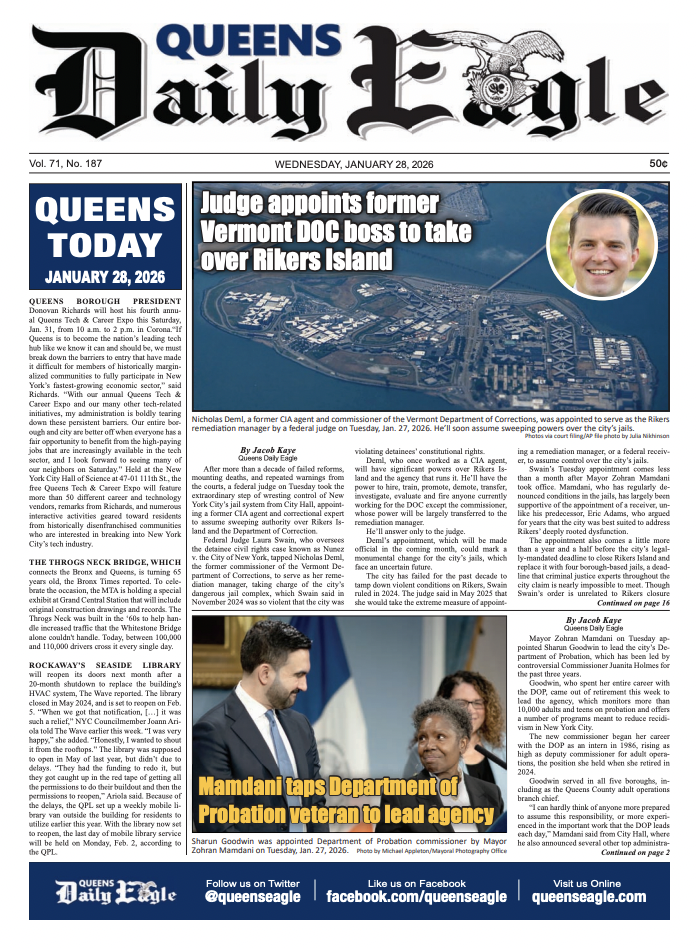Compost coalition fights to stop eviction of Queens organization
/Community advocates and councilmembers rallied to support local compost programs facing eviction by the city. Eagle file photo by Rachel Vick
By Rachel Vick
A citywide coalition of environmental justice groups and local elected officials rallied Tuesday to demand the continuation of City Council-funded compost programs at risk of eviction.
Queens Councilmembers, including Parks Committee Chair Peter Koo, Jimmy Van Bramer and Antonio Reynoso, committed to fighting for community composting groups like Big Reuse, which is being evicted by the Parks Department at the end of the year. They said the sites are imperative for disposing of food scraps, yard trimmings and other organic waste after the city eliminated a curbside compost pickup program due to budget constraints earlier this year.
"The City Council fought to restore funding for community composting hubs because they are the only remaining way for NYC residents to compost through the COVID pandemic and associated economic downturn,” Reynoso said. “Now Parks is trying to take away their sites.”
Council allocations helped composting operations like Big Reuse, located under the Queensboro Bridge, resume operations in September after the city’s latest budget slashed funding to the Parks and Sanitation Departments.
“Big Reuse took this site, which was being used as a commercial, industrial dump ... and turned into a place of community,” said Van Bramer, who represents the neighborhood.
“The city and Parks walking away from community composting is disgraceful and sickening,” he added. ”We should be increasing the number of sites and supporting groups like [Big Reuse], not evicting [them].”
Cutting back on composting would not only contribute to the greenhouse gas emissions from food waste in dumps, but also to the concentration of small particulate matter that has been linked to COVID-19 deaths in Black, Brown and low income communities, according to the “Save our Compost” Coalition, which organized Tuesday’s event.
Eliminating the compost programs is antithetical to the city’s sustainability agenda, said Big Reuse Executive Director Justin Green.
“I'm really touched by the outpouring of support from the community,” Green said. “We built this together over many years and lots of effort. We shouldn't have to be talking about this.”
Each year, Big Reuse processes over a million pounds of food scraps from community members and yard waste from the Parks Department. The final product is distributed into local parks.
“What we've created with Parks and Sanitation is a model that could be replicated in a way that takes leaves and yard waste and turns it into something useful for parks,” Green told the Eagle in November. “It makes so much sense — we as a community need to work together to fight climate change.”
The Parks Department has said it will use the plot of land to store vehicles and conduct other operations.
“Big Reuse was always aware that compost operations at Queensbridge Park would have to relocate upon expiration of the temporary use agreement,” Parks spokesperson Charisse Hill told the Eagle in October. “The agreement was established in May 2018 and expires this December.”




